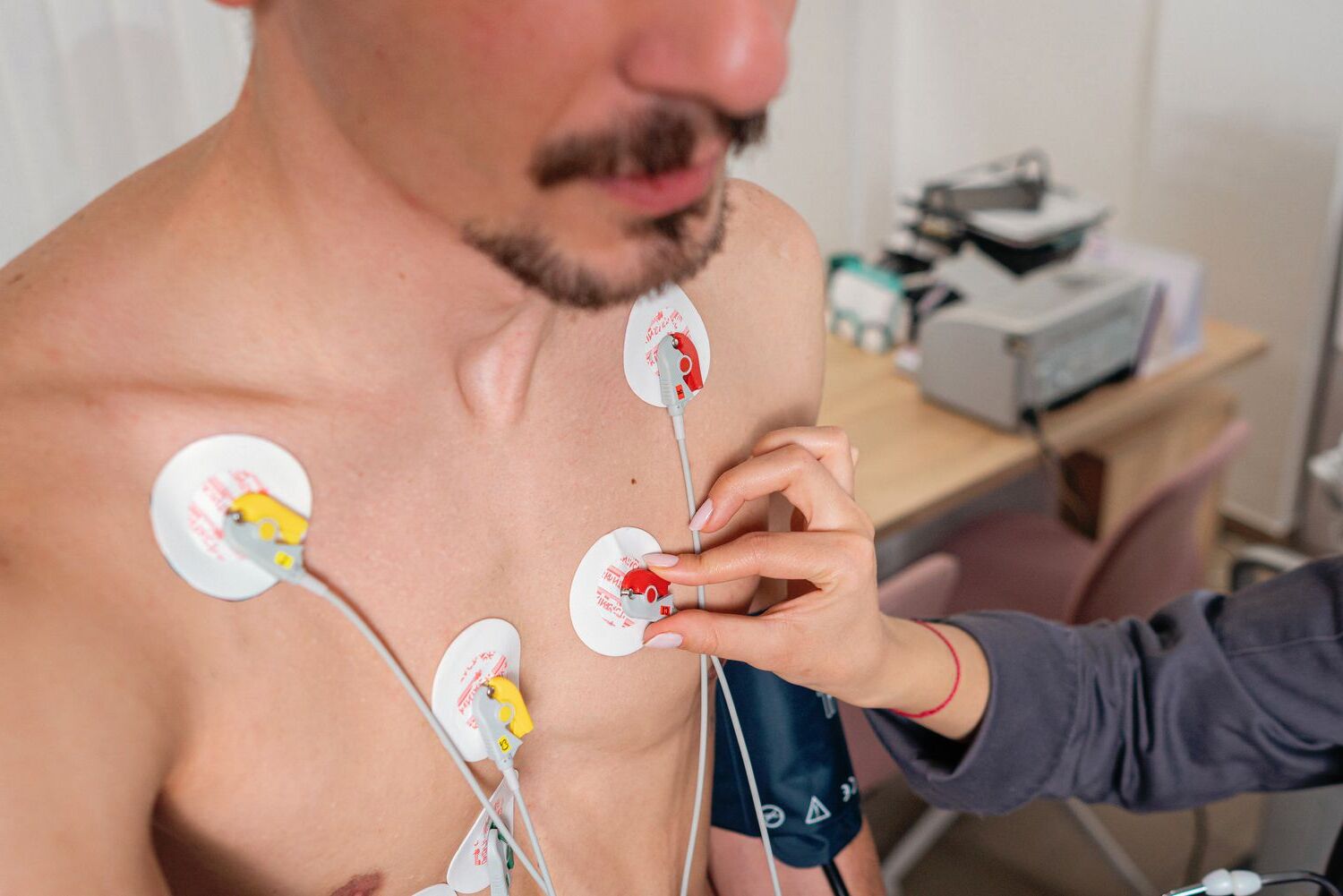Electrocardiograms (EKGs) are essential tools in diagnosing and monitoring heart conditions. This quiz will challenge your understanding of EKG interpretation, heart rhythms, and the significance of various waveforms. Whether you’re a seasoned professional or a curious learner, these questions will help you refine your skills and knowledge. Good luck and enjoy the challenge!
We recommend that you do not leave the page that you are taking this quiz in. Stay honest 🙂
EKG Quiz Questions Overview
1. What does the P wave on an EKG represent?
Atrial depolarization
Ventricular depolarization
Atrial repolarization
Ventricular repolarization
2. Which part of the EKG corresponds to ventricular depolarization?
P wave
QRS complex
T wave
U wave
3. What is the normal range for the PR interval on an EKG?
0.04 to 0.12 seconds
0.12 to 0.20 seconds
0.20 to 0.30 seconds
0.30 to 0.40 seconds
4. Which condition is indicated by a prolonged QT interval?
Atrial fibrillation
Ventricular tachycardia
Long QT syndrome
Wolff-Parkinson-White syndrome
5. What does the T wave on an EKG represent?
Atrial depolarization
Ventricular depolarization
Atrial repolarization
Ventricular repolarization
6. What is the significance of the ST segment on an EKG?
It represents atrial contraction
It represents ventricular contraction
It represents the period between ventricular depolarization and repolarization
It represents the period between atrial depolarization and repolarization
7. Which lead is known as the ‘ground’ lead in a standard 12-lead EKG?
Lead I
Lead II
Lead III
Right leg lead
8. What is the normal heart rate range for a healthy adult as seen on an EKG?
40-60 bpm
60-100 bpm
100-120 bpm
120-140 bpm
9. Which of the following is a common cause of an elevated ST segment on an EKG?
Myocardial infarction
Atrial fibrillation
Pulmonary embolism
Hypokalemia
10. What does a U wave on an EKG typically indicate?
Atrial depolarization
Ventricular depolarization
Ventricular repolarization
Hypokalemia
We recommend that you do not leave the page that you are taking this quiz in. Stay honest 🙂
Can Your Friends Do Better Than You in This Quiz?
Share this quiz with your friends and compare results.
Was this page helpful?
More Popular Health & Wellness Quizzes:
-
Bipolar or ADHD Quiz
-
Sepsis Quiz
-
Medical Terminology Quiz
-
Body Regions Quiz
-
Puberty Quiz
-
Sexual Harassment Quiz











